
Triesenberg: A Serene Alpine Getaway
Nestled in the picturesque mountains of Liechtenstein, Triesenberg is a hidden gem waiting to be explored. This charming village is perched high above the Rhine Valley, offering breathtaking panoramic views of the surrounding Alps. As you wander through its narrow streets, you'll discover traditional wooden houses, vibrant flower boxes, and a sense of tranquility that is hard to find elsewhere. One of the highlights of Triesenberg is its rich cultural heritage. The village is home to the Walser people, a group that settled here in the 13th century. Their unique customs and dialect add to the area's distinctive character. Don't miss the Walser Museum, where you can learn about their fascinating history and traditions. For nature lovers, Triesenberg provides an ideal base for outdoor activities. Hiking trails abound, with routes suitable for all levels of experience. In the winter, the nearby Malbun ski resort offers excellent skiing and snowboarding opportunities. Whether you're seeking adventure or relaxation, Triesenberg has something to offer every visitor.
Local tips in Triesenberg
- Visit the Walser Museum to understand the unique culture and history of the Walser people.
- Take a hike on the Fürstensteig trail for stunning views of the Rhine Valley and surrounding mountains.
- Try the local cuisine at a traditional restaurant; the Käsknöpfle is a must-try dish.
- Plan your visit during autumn to see the vibrant fall foliage that transforms the landscape.
- If visiting in winter, consider staying in Malbun for easy access to ski slopes and winter sports.
Triesenberg: A Serene Alpine Getaway
Nestled in the picturesque mountains of Liechtenstein, Triesenberg is a hidden gem waiting to be explored. This charming village is perched high above the Rhine Valley, offering breathtaking panoramic views of the surrounding Alps. As you wander through its narrow streets, you'll discover traditional wooden houses, vibrant flower boxes, and a sense of tranquility that is hard to find elsewhere. One of the highlights of Triesenberg is its rich cultural heritage. The village is home to the Walser people, a group that settled here in the 13th century. Their unique customs and dialect add to the area's distinctive character. Don't miss the Walser Museum, where you can learn about their fascinating history and traditions. For nature lovers, Triesenberg provides an ideal base for outdoor activities. Hiking trails abound, with routes suitable for all levels of experience. In the winter, the nearby Malbun ski resort offers excellent skiing and snowboarding opportunities. Whether you're seeking adventure or relaxation, Triesenberg has something to offer every visitor.
When is the best time to go to Triesenberg?
Iconic landmarks you can’t miss
Vaduz Castle
Discover Vaduz Castle, a breathtaking symbol of Liechtenstein's heritage, offering stunning views and rich history in the heart of Vaduz.
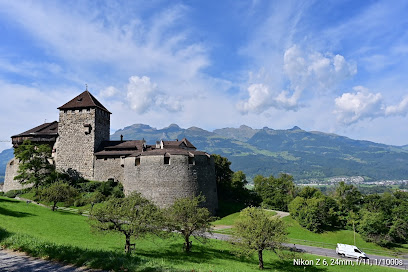
Burg Gutenberg
Discover the enchanting Burg Gutenberg in Balzers, where history meets live music in a breathtaking setting.
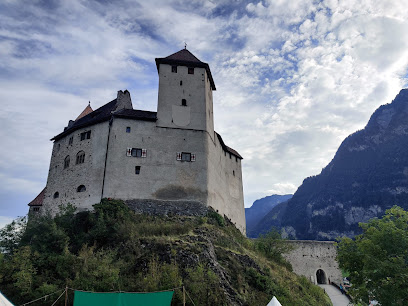
Kathedrale St. Florin
Discover the architectural beauty and serene atmosphere of St. Florin Cathedral, a must-visit cultural landmark in Vaduz, Liechtenstein.
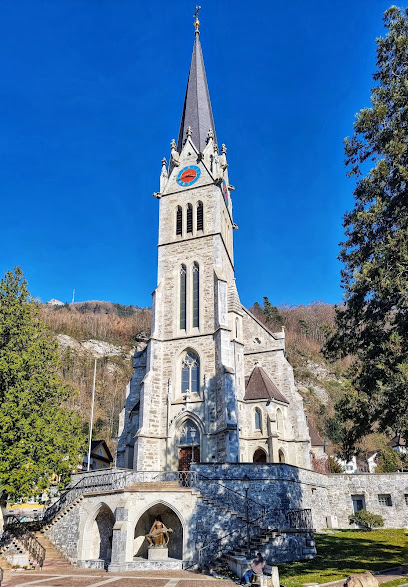
Liechtenstein Center
Explore the enchanting Principality of Liechtenstein at the Liechtenstein Center, your gateway to culture, history, and breathtaking landscapes.
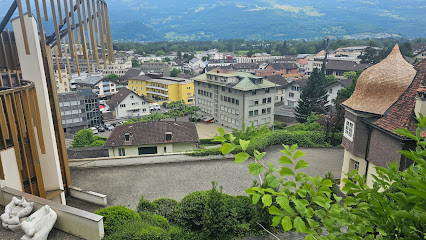
Vaduz Citytrain AG
Discover the beauty of Vaduz with Vaduz Citytrain AG, your perfect sightseeing partner for an unforgettable journey through Liechtenstein's capital.
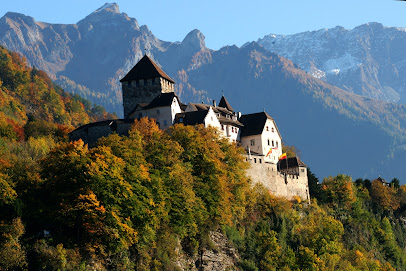
Alte Rheinbrücke
Explore the Alte Rheinbrücke, a stunning bridge in Sevelen, Switzerland, where history meets breathtaking views of the Rhine River and picturesque landscapes.
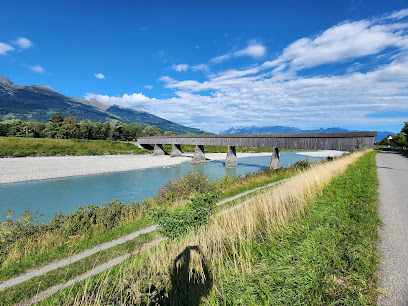
Rheinpark Stadium
Experience the excitement of sports and culture at Rheinpark Stadium in Vaduz – a vibrant hub for thrilling matches and unforgettable events.
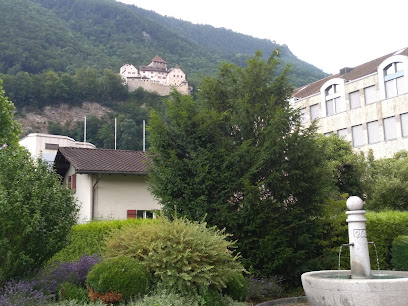
Kunstmuseum Liechtenstein
Explore the unique blend of modern architecture and contemporary art at Kunstmuseum Liechtenstein in Vaduz.
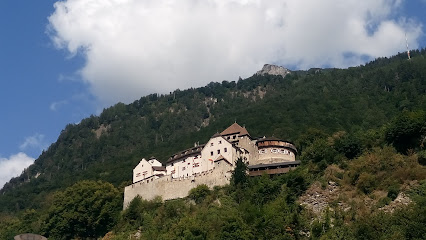
Obere Burg
Explore Obere Burg, a historical landmark in Schellenberg showcasing stunning architecture and rich cultural heritage amidst picturesque landscapes.
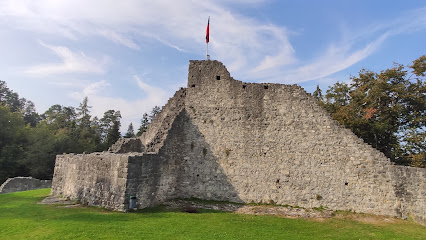
Liechtensteinisches LandesMuseum
Explore the cultural heart of Liechtenstein at the Liechtensteinisches LandesMuseum, where history, art, and heritage come together in Vaduz.
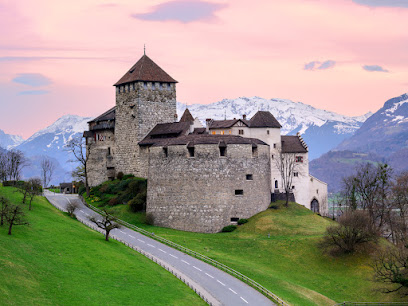
Lama- & Alpakahof Triesenberg
Experience the tranquil charm of nature at Lama- & Alpakahof Triesenberg, where friendly llamas and alpacas await your visit in the scenic Liechtenstein Alps.
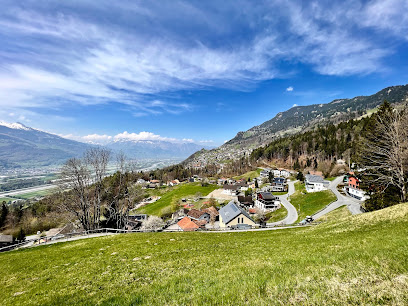
Berggasthaus Sücka
Discover the serene beauty and warm hospitality of Berggasthaus Sücka in Triesenberg, your perfect Alpine getaway in Liechtenstein.

Red House, Vaduz
Explore the Red House in Vaduz, a stunning historical landmark that embodies the culture and heritage of Liechtenstein's capital.
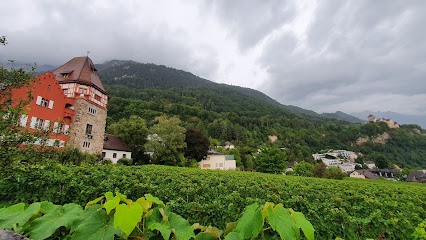
Regierungsgebäude des Fürstentums Liechtenstein
Discover the stunning Regierungsgebäude des Fürstentums Liechtenstein, a symbol of governance and culture in picturesque Vaduz.
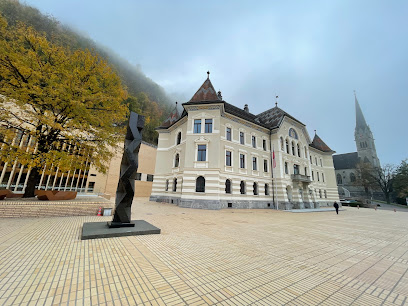
Ridamm-City ErlebnisWelt - Neuguthof
Experience the excitement of Ridamm-City ErlebnisWelt in Vaduz, a premier recreation center perfect for families and adventure enthusiasts.
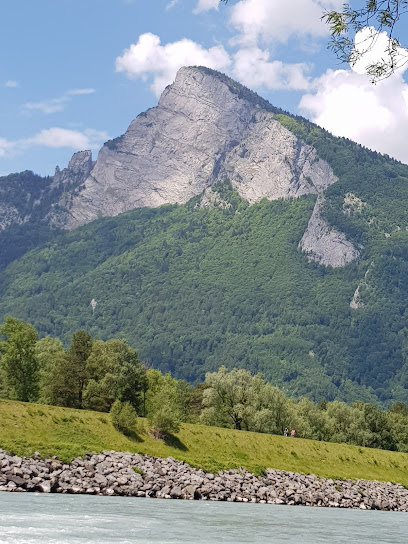
Unmissable attractions to see
Heididorf
Experience the enchanting world of Heidi in the Swiss Alps. Explore Heidi's house, interact with animals, and immerse yourself in this timeless story.
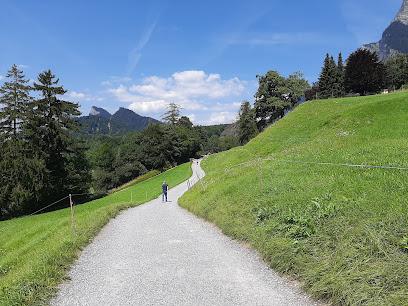
Abbey of Saint Gall
Explore the Abbey of Saint Gall, a UNESCO World Heritage site with a rich history, stunning Baroque architecture, and one of the world's oldest libraries.

Wildpark Feldkirch
Discover over 160 animals in their natural habitat at Wildpark Feldkirch. Enjoy free admission, scenic trails, and family fun in the Austrian Alps.
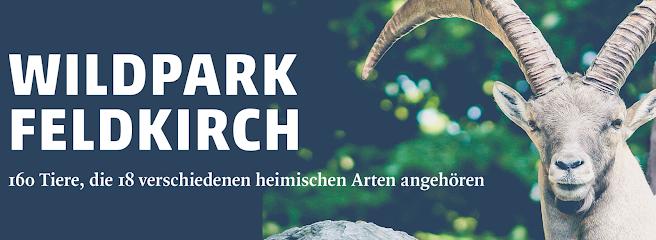
Seebühne Bregenz
Experience world-class opera on a floating stage with stunning views of Lake Constance and the Alps at Seebühne Bregenz.
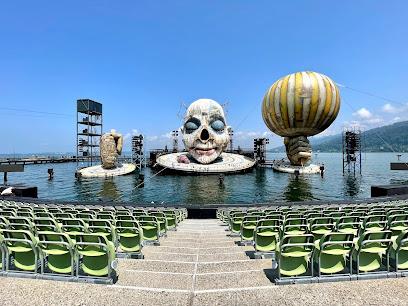
Appenzeller Schaukäserei
Discover the secrets of Appenzeller cheese at this interactive dairy, where tradition and flavor come to life in the heart of Switzerland.
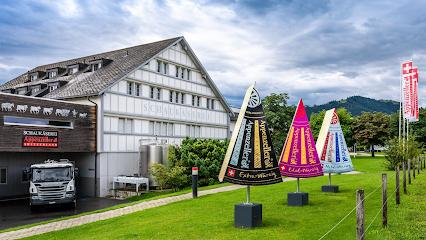
Bregenzer Festspiele
Experience world-class opera on a floating stage with breathtaking views at the Bregenzer Festspiele on Lake Constance.
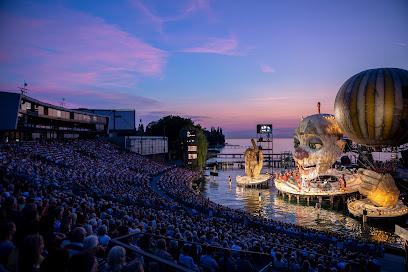
Aescher - Guesthouse on the mountain
Experience Swiss hospitality at this iconic guesthouse built into a cliff, offering stunning views and a glimpse into history.
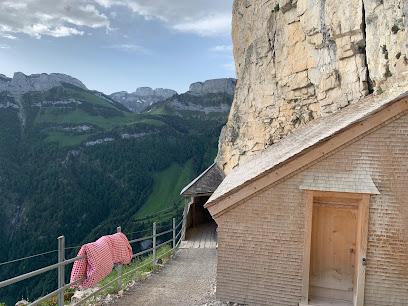
St. Gallen Cathedral
Discover St. Gallen Cathedral, a UNESCO World Heritage site, with its stunning Baroque architecture, rich history, and spiritual significance in St. Gallen, Switzerland.
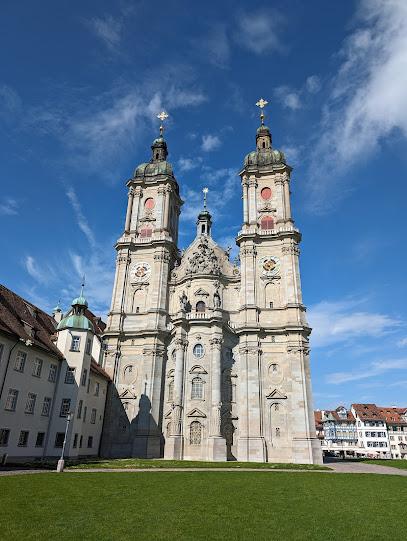
Pfänderbahn
Reach the summit in minutes for panoramic views of Lake Constance and the Alps with the iconic Pfänderbahn cable car.
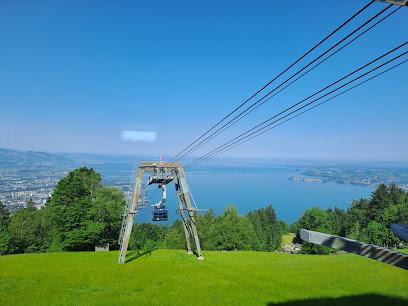
Mangturm
Explore Lindau's iconic medieval tower, offering stunning views and a touch of fairy-tale magic on the shores of Lake Constance.
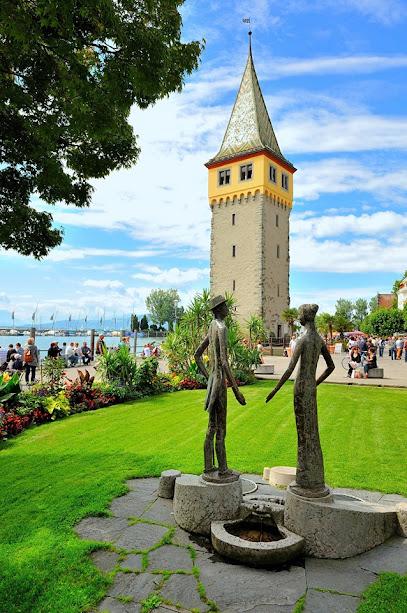
Caumasee
Experience the tranquil beauty of Caumasee, a stunning lake in Flims, Switzerland, surrounded by pristine nature and perfect for outdoor adventures.
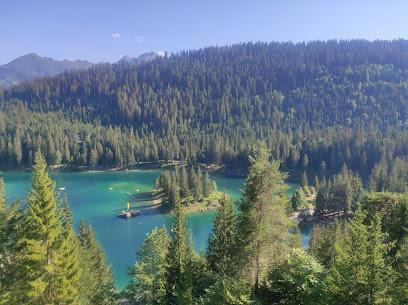
Schattenburg
Explore Schattenburg Castle in Feldkirch: A medieval fortress with a rich history, museum, and panoramic views of the Austrian landscape.
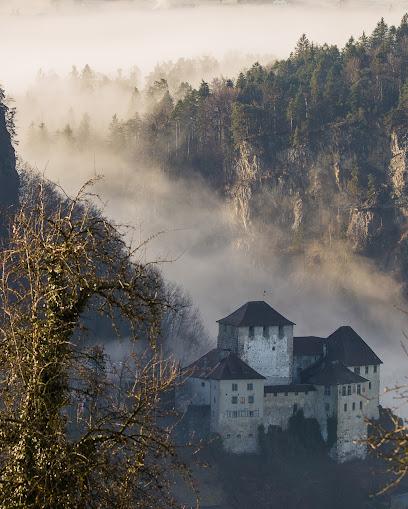
Talstation Luftseilbahn Wasserauen-Ebenalp AG
Ascend to the Ebenalp via cable car for breathtaking Alpstein views, hiking, and the iconic Berggasthaus Aescher. Open year-round!
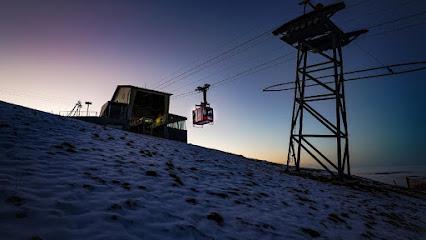
Burg Gutenberg
Explore Burg Gutenberg in Balzers, Liechtenstein: a medieval castle with stunning views, rich history, and cultural events.
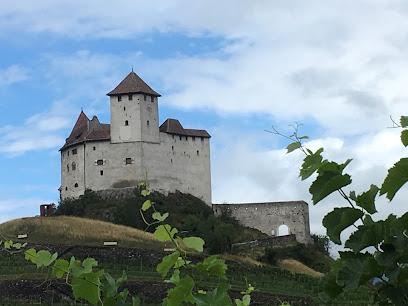
Werdenberg Castle
Discover Werdenberg Castle: A captivating journey through Swiss history, offering stunning views and immersive medieval experiences.
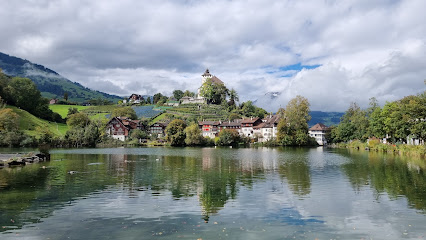
Essential places to dine
New Castle
Discover the rich flavors of Vaduz at New Castle, where local ingredients meet exceptional culinary craftsmanship in an inviting setting.
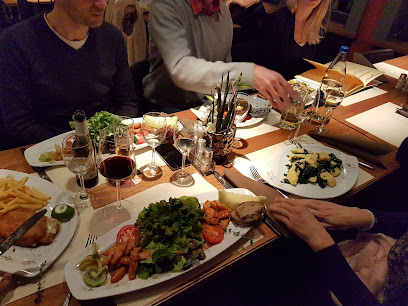
Brasserie Burg
Experience the vibrant flavors of gourmet burgers and Italian cuisine at Brasserie Burg - a culinary gem in Vaduz.
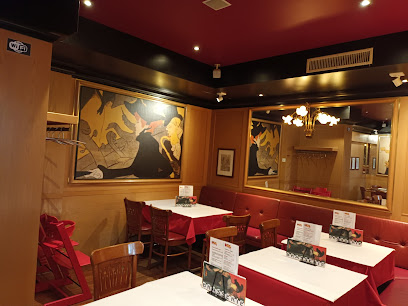
Berggasthaus Masescha
Experience authentic local cuisine at Berggasthaus Masescha while enjoying breathtaking mountain views in Triesenberg.
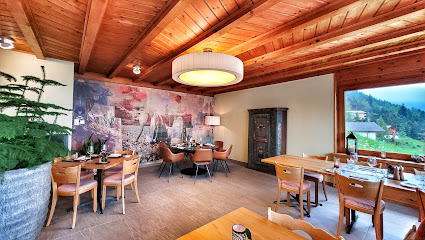
Schlössle Mahal
Experience authentic Indian flavors at Schlössle Mahal in Vaduz - where tradition meets taste in every dish.
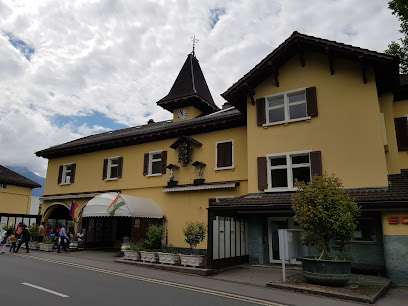
Pizzeria il Salento
Discover authentic Italian flavors at Pizzeria il Salento in Triesen – where every pizza tells a story.
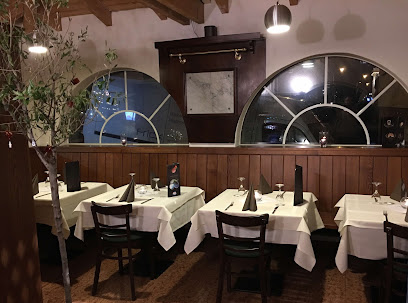
Landgasthof Au
Discover the charm of Landgasthof Au in Vaduz: A perfect blend of traditional Swiss cuisine and warm hospitality awaits you.
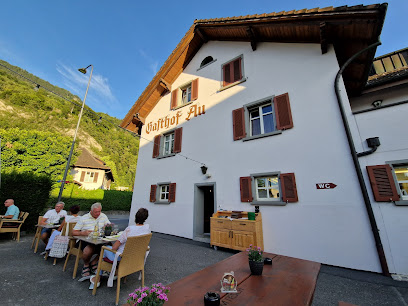
Restaurant Forum
Discover authentic Swiss cuisine at Restaurant Forum in Schaan - where tradition meets flavor in a cozy setting.
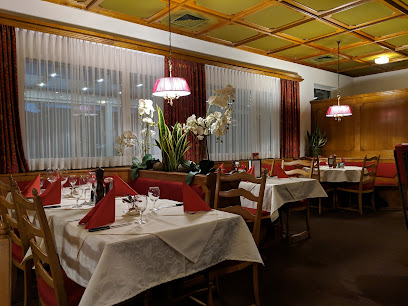
Kainer
Experience the best of Liechtenstein's cuisine at Kainer, a top-rated gastropub in Triesenberg known for its local flavors and warm hospitality.
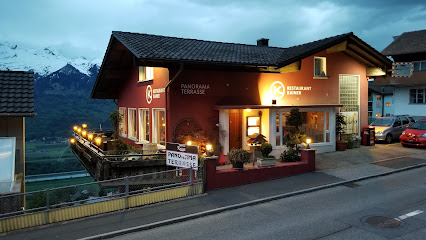
Restaurant Amarone
Discover authentic Italian cuisine at Restaurant Amarone in Vaduz – where tradition meets modernity in every delicious bite.
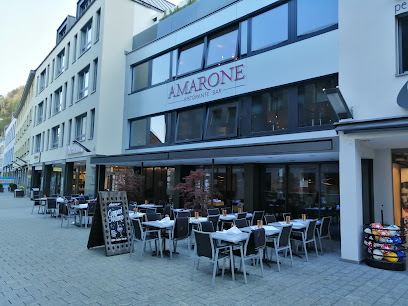
Red Mango Thai Takeaway
Delight in authentic Thai flavors at Red Mango Thai Takeaway in Triesen—your destination for delicious Asian cuisine.
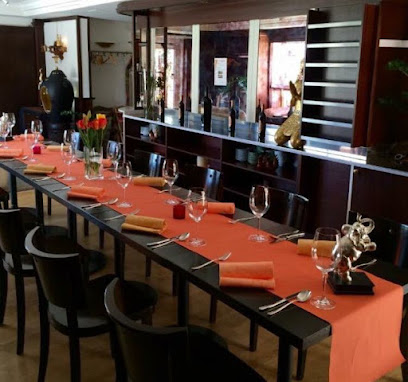
Torkel
Discover Torkel in Vaduz - where authentic Swiss cuisine meets exceptional hospitality for an unforgettable dining experience.
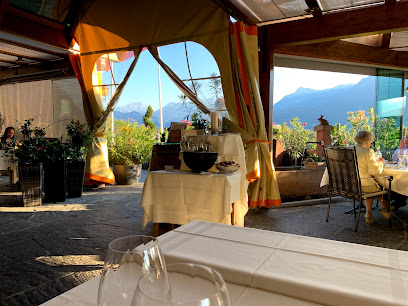
made-in-italy.li
Experience authentic Italian cuisine at Made-in-Italy in Vaduz—where every dish tells a story of culinary tradition.
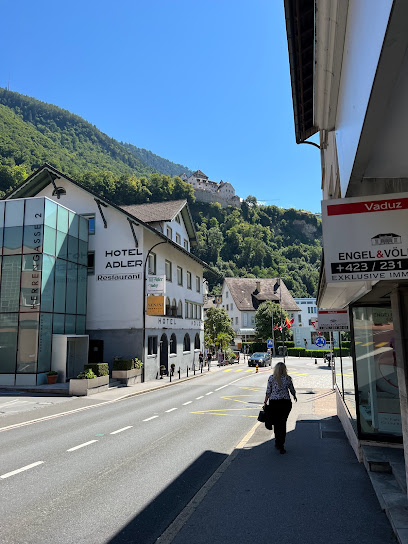
Bäckerei Guflina
Discover the charm of Bäckerei Guflina in Triesenberg - where every bite is a piece of European culinary delight.
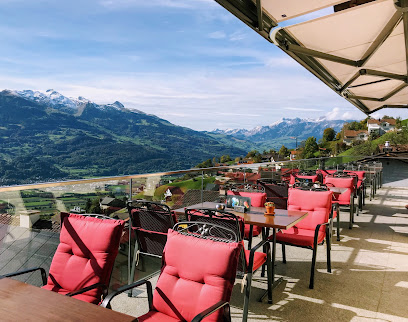
Adler
Savor traditional Swiss flavors at Adler in Vaduz – where every meal tells a story.
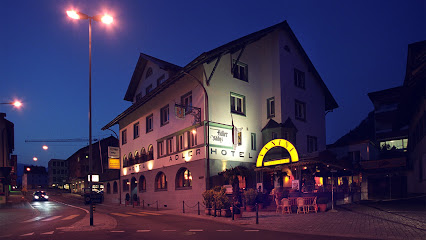
Edelweiss
Experience authentic Swiss cuisine in Triesenberg at Edelweiss – where tradition meets breathtaking views.
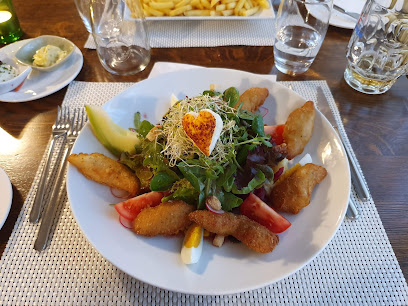
Markets, malls and hidden boutiques
Denner Satellit
Discover Denner Satellit, your go-to discount supermarket in Triesenberg for quality groceries at unbeatable prices.
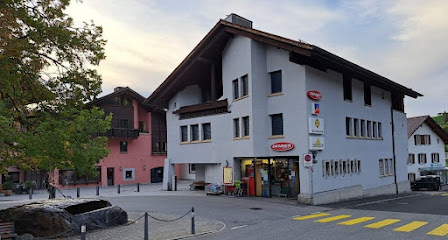
Hoi Liechtenstein - Souvenir Boutique
Experience the charm of Liechtenstein at Hoi, Vaduz’s premier souvenir boutique offering unique gifts, local delicacies, and artisanal crafts.
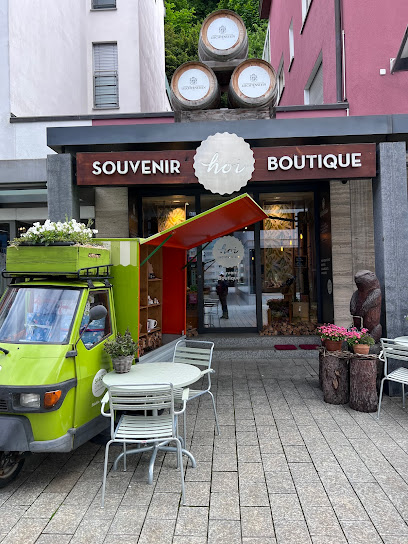
Lova Center
Explore the Lova Center in Triesen, where shopping meets culture and culinary delights in a vibrant atmosphere.
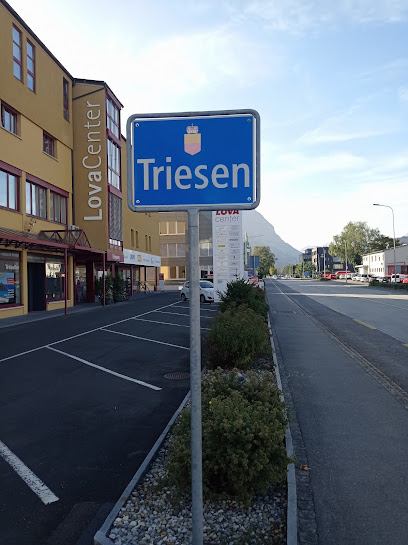
Bärgwelten
Explore Bärgwelten in Vaduz for an exquisite selection of fashion clothing, accessories, and fine liquors that embody the spirit of Liechtenstein.
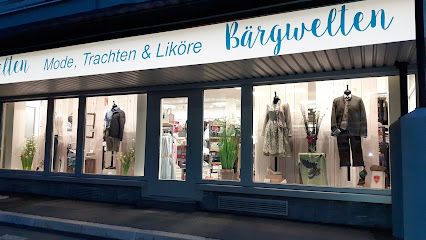
Vip's Men's Fashion
Discover timeless elegance and modern style at Vip's Men's Fashion, Vaduz's top destination for men's clothing and accessories.
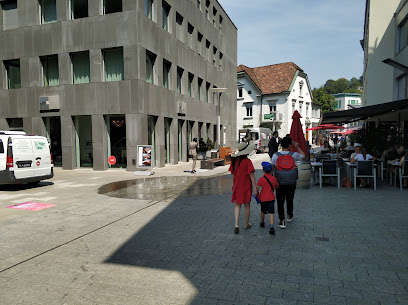
Central Plaza
Explore the vibrant Central Plaza in Vaduz for unique souvenirs, exquisite watches, and an authentic taste of Liechtenstein's culture.
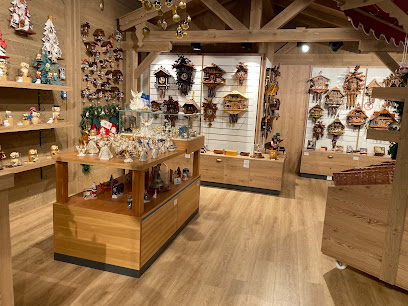
Hedihof
Explore Hedihof, a charming farm shop in Triesenberg, offering local produce and handcrafted goods amidst stunning mountain views.
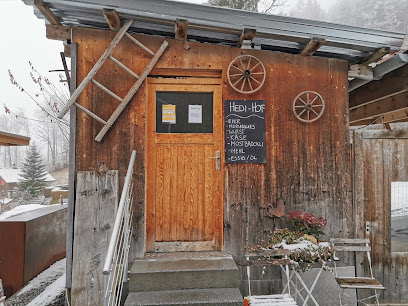
Dolce AG
Explore Dolce AG in Vaduz for exquisite chocolates and delightful gifts that showcase the beauty of Liechtenstein.
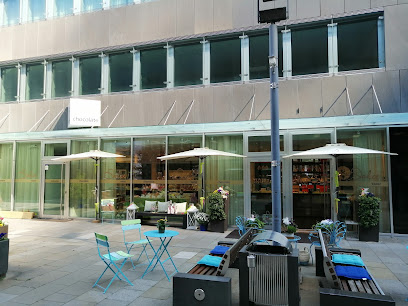
Dunja A. Sprenger - Jones Vaduz
Discover the essence of fashion at Dunja A. Sprenger - Jones in Vaduz, where elegance meets style in a charming boutique setting.
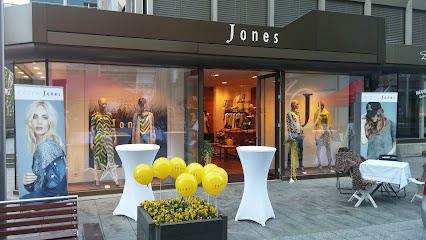
FELIX W. STUDIO Liechtenstein
Elevate your style with high-quality menswear at FELIX W. STUDIO in Vaduz, where fashion meets sophistication in a stunning setting.

Brogle Fashion Est
Explore Brogle Fashion Est in Vaduz for stylish clothing and accessories that define elegance and quality, perfect for every fashion enthusiast.
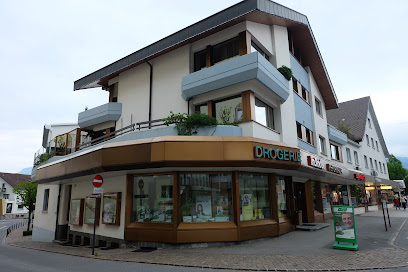
Palmers
Explore the finest lingerie and intimate apparel at Palmers in Vaduz, where quality meets elegance in every piece.
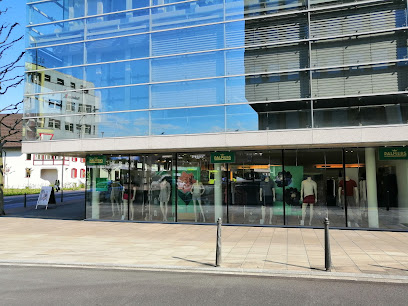
風鈴販売店
Explore Vaduz's Wind Chime Shop for unique handcrafted souvenirs that echo the beauty and culture of Liechtenstein.
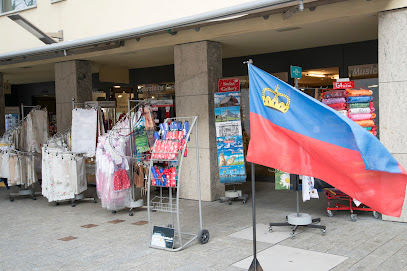
ESPIRIT
Explore the latest trends in fashion at ESPIRIT, Vaduz's top clothing and outlet store, where style meets affordability.
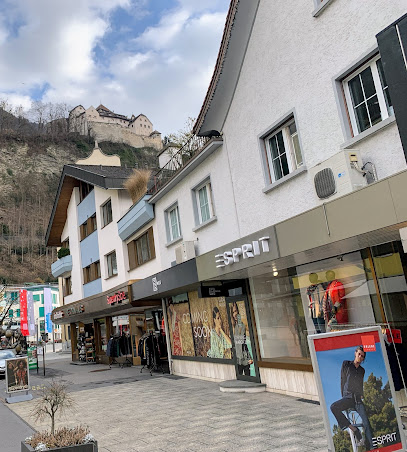
hierbeimir – der regionale Online-Shop
Discover the essence of Liechtenstein at hierbeimir, your go-to online shop for regional products and unique souvenirs.

Essential bars & hidden hideouts
Berggasthaus Masescha
Discover the culinary delights of Berggasthaus Masescha, a stunning mountain restaurant offering exquisite local cuisine and breathtaking views in Triesenberg.
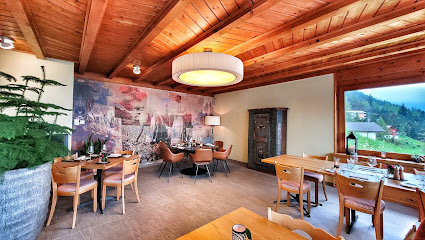
Kainer
Experience the flavors of Liechtenstein at Kainer, a charming gastropub with breathtaking views of the Rhine River, perfect for every foodie.
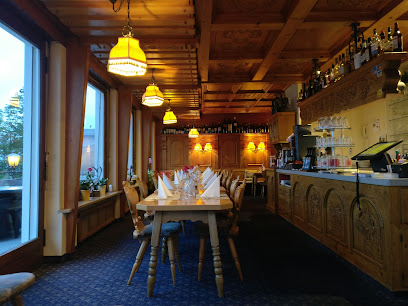
Bäckerei Guflina
Discover the charm of Bäckerei Guflina, a delightful café and bakery in Triesenberg, offering authentic European pastries and a cozy atmosphere.
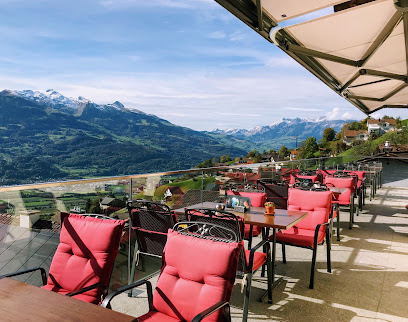
Edelweiss
Experience authentic Swiss cuisine at Edelweiss in Triesenberg, where stunning views and delicious flavors come together in a cozy alpine setting.
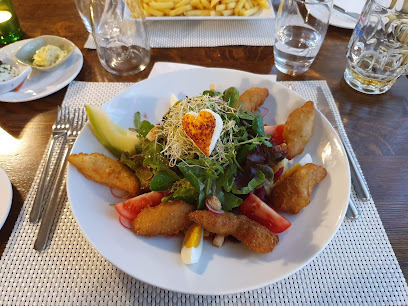
Esquire Bar.Bistro
Discover the vibrant culinary scene at Esquire Bar.Bistro in Vaduz, where local flavors meet global inspirations in a welcoming atmosphere.
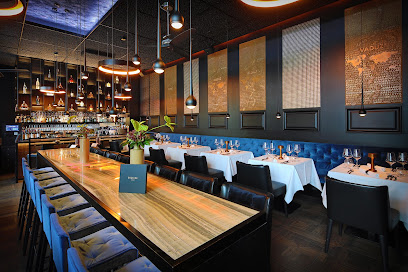
Zwei Bar
Experience the vibrant nightlife of Vaduz at Zwei Bar, where creative cocktails and a cozy atmosphere await you.
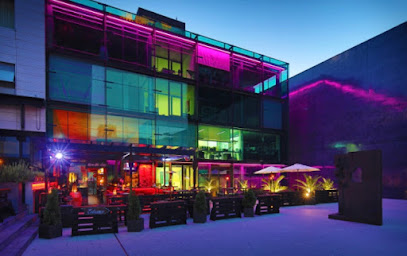
Altenbach Restaurant & Bar
Experience the flavors of Vaduz at Altenbach Restaurant & Bar, where local ingredients meet culinary artistry in a cozy setting.
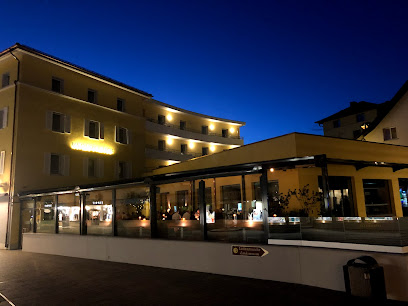
Restaurant Heusträffli
Experience the charm of Triesenberg at Restaurant Heusträffli, where local flavors meet stunning views in a cozy atmosphere.
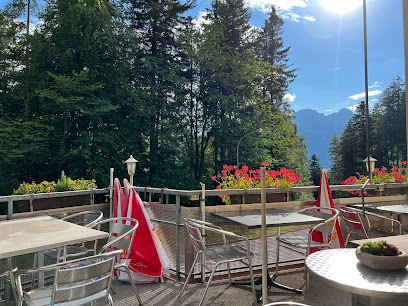
Take 5 Vaduz
Enjoy a lively atmosphere with delicious cocktails and great entertainment at Take 5 Vaduz, the go-to bar for nightlife in Triesen.
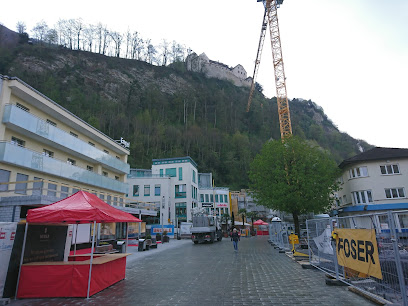
Billard&Dart Center Triesen
Discover the excitement of billiards and darts at Billard&Dart Center Triesen, where fun and relaxation come together in a vibrant atmosphere.

Hotel Restaurant Kulm
Experience the best of Liechtenstein's flavors at Hotel Restaurant Kulm, where local ingredients meet stunning alpine views in Triesenberg.
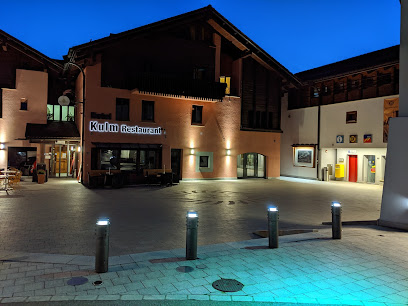
WY Weinbar
Discover WY Weinbar in Schaan: A cozy bar with an exquisite selection of wines and delightful small bites, perfect for any wine lover.
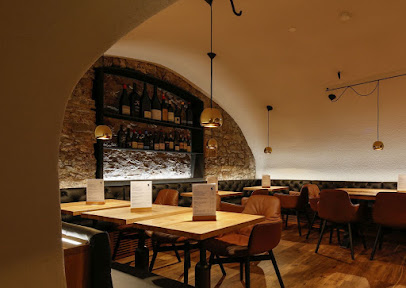
Black Pearl Bar
Experience the lively ambiance and exquisite drinks at Black Pearl Bar in Triesen, where relaxation meets vibrant nightlife.
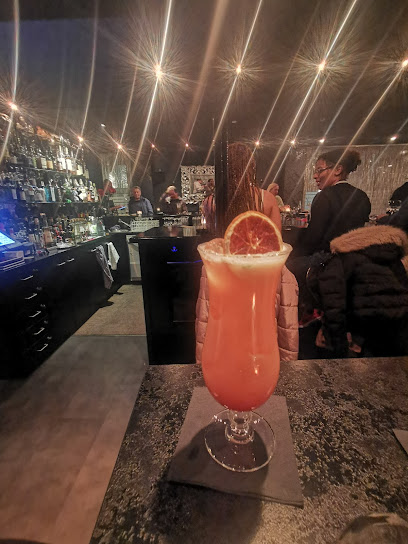
Lömagarta
Experience the enchanting Lömagarta beer garden in Vaduz, where local brews and a friendly atmosphere create memorable moments in the heart of Switzerland.
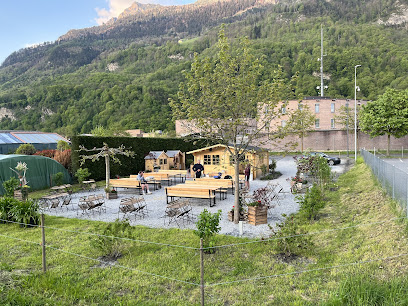
Elisas taste of Italianfood and Drinks
Discover authentic Italian cuisine at Elisas in Vaduz, where every dish is a delightful journey through Italy's rich culinary heritage.
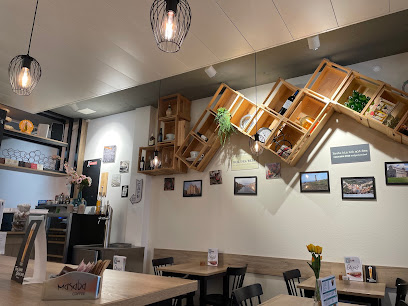
Local Phrases
-
- HelloHallo
[hah-loh] - GoodbyeUf widerluege
[oof vee-der-loo-geh] - YesJa
[yah] - NoNei
[n-eye] - Please/You're welcomeBitte
[bih-teh] - Thank youMerci
[mehr-see] - Excuse me/SorryEntschuldigung
[ent-shool-dee-goong] - How are you?Wie goots?
[vee gohts] - Fine. And you?Guat. Und dir?
[gw-ah-t. oond deer] - Do you speak English?Redsch du Englisch?
[red-sh doo eng-leesh] - I don't understandIch verstoos das nit
[eekh fair-shtohs doss neet]
- HelloHallo
-
- I'd like to see the menu, pleaseIch möcht gärn d'Menu luege, bitte
[eekh murkht gehrn deh-meh-noo loo-geh, bih-teh] - I don't eat meatIch äss kai Fleisch
[eekh ahs kai flysh] - Cheers!Proscht!
[proh-sht] - I would like to pay, pleaseIch möcht bitte zahle
[eekh murkht bih-teh tsah-leh]
- I'd like to see the menu, pleaseIch möcht gärn d'Menu luege, bitte
-
- Help!Hilf!
[hilf] - Go away!Geh weg!
[geh vehg] - Call the Police!Ruf d'Polizei!
[roof deh-poh-lee-tsey] - Call a doctor!Ruf en Dokter!
[roof en dohk-ter] - I'm lostI ha mi verlore
[ee hah mee fair-lo-reh] - I'm illI bi krank
[ee bee krah-nk]
- Help!Hilf!
-
- I'd like to buy...Ich möcht... kaufe
[eekh murkht kow-fuh] - I'm just lookingIch luege nume
[eekh loo-geh noo-meh] - How much is it?Was koscht das?
[vahs kohsht doss] - That's too expensiveDas isch z' teier
[dahs eesh tseh teer] - Can you lower the price?Chasch du de Priis nider lo?
[khahsh doo deh prees nee-der loh]
- I'd like to buy...Ich möcht... kaufe
-
- What time is it?Wieviel Uhr isch es?
[vee-feel oor eesh es] - It's one o'clockEs isch ei Uhr
[es eesh eye oor] - Half past (10)Halb zehni
[hahlp tseh-nee] - MorningMorga
[mohr-gah] - AfternoonNamitag
[nah-mee-tahg] - EveningObig
[oh-bihg] - YesterdayGestern
[geh-shtern] - TodayHüt
[hoot] - TomorrowMorn
[mohrn] - 1Eins
[eyns] - 2Zwei
[tsv-eye] - 3Drei
[dry] - 4Vier
[feer] - 5Fünf
[foonf] - 6Sechs
[zehks] - 7Sieben
[zee-ben] - 8Acht
[ahkht] - 9Neun
[noyn] - 10Zehn
[tsehn]
- What time is it?Wieviel Uhr isch es?
-
- Where's a/the...?Wo isch e...?
[voh eesh eh] - What's the address?Was isch di Adresse?
[vahs eesh dee ah-dreh-seh] - Can you show me (on the map)?Chasch mir (ufem Plan) zeige?
[khahsh meer oof-ehm plahn tsigh-eh] - When's the next (bus)?Wänn fahrt de nächscht (Bus)?
[vann fahrt deh nehksht boos] - A ticket (to ....)E Billett (nach ....)
[eh bill-ett nahkh]
- Where's a/the...?Wo isch e...?
History of Triesenberg
-
Triesenberg was founded in the 13th century by Walser settlers from the Swiss canton of Valais. These settlers brought with them their unique dialect and traditions, which have significantly influenced the culture of Triesenberg. The village was originally established as an agricultural community, with its high-altitude location providing fertile grounds for farming and livestock rearing.
-
The spiritual life of Triesenberg has long been centered around its church, the Church of St. Joseph, which was built in 1767. This Baroque-style church has served as a focal point for the community's religious activities and is renowned for its beautiful interior frescoes. Religious festivals and events continue to play a significant role in the cultural life of Triesenberg.
-
The unique Walser heritage of Triesenberg is celebrated and preserved in various ways. The Walser Museum, located in the heart of the village, offers an in-depth look at the history, traditions, and daily life of the Walser people. Exhibits include traditional clothing, tools, and artifacts that illustrate the rich cultural legacy of the settlers. The Walser dialect, a distinct Alemannic German variant, is still spoken by some residents and taught to younger generations.
-
Throughout the 19th and 20th centuries, Triesenberg underwent significant economic changes. Originally an agrarian community, it adapted to the changing times by diversifying its economy. Tourism has become a vital industry, with visitors attracted to the village's picturesque landscapes, hiking trails, and ski slopes. Additionally, small-scale manufacturing and service industries have contributed to the local economy.
-
Triesenberg hosts several cultural events that celebrate its history and traditions. The Triesenberg Village Festival, held annually, features traditional music, dance, and culinary delights, drawing visitors from across the region. Another notable event is the Walser Culture Days, which includes workshops, lectures, and exhibitions focused on preserving and promoting Walser heritage.
-
Triesenberg boasts a variety of architectural highlights that reflect its historical and cultural evolution. In addition to the Church of St. Joseph, the village is home to several well-preserved traditional Walser houses, characterized by their wooden construction and steep gabled roofs. These buildings offer a glimpse into the architectural styles and living conditions of past centuries.
-
The natural landscape surrounding Triesenberg is a crucial part of its identity. The village is nestled in the Alps, offering stunning views and a wealth of outdoor activities. Efforts to conserve this natural beauty have been ongoing, with local authorities and community groups working to protect the environment while promoting sustainable tourism. Hiking trails, such as the popular Walserweg, provide opportunities for visitors to explore the region's natural splendor.
Triesenberg Essentials
-
Triesenberg is located in the eastern part of Liechtenstein. The nearest international airport is Zurich Airport in Switzerland, approximately 120 kilometers away. From Zurich, you can take a train to Sargans or Buchs, and then a local bus or taxi to Triesenberg. The journey typically takes around 2 to 3 hours. Alternatively, you can rent a car and drive, enjoying the scenic route through the Swiss Alps.
-
Triesenberg is a small town, and many of its attractions are within walking distance. Public transportation is efficient, with regular buses connecting Triesenberg to Vaduz and other neighboring towns. Taxis are also available, but they can be expensive. For those who prefer more flexibility, renting a car is a convenient option, especially if you plan to explore the surrounding areas and the beautiful Liechtenstein countryside.
-
The official currency in Liechtenstein is the Swiss Franc (CHF). Credit and debit cards are widely accepted in hotels, restaurants, and shops. However, it is advisable to carry some cash for smaller establishments and remote areas. ATMs are available in Triesenberg, so withdrawing cash is convenient.
-
Triesenberg is generally a very safe destination for tourists. Crime rates are low, and violent crime is rare. However, like any travel destination, it is advisable to take standard precautions such as keeping an eye on your belongings in crowded places and avoiding poorly lit areas at night. There are no specific high-crime areas targeting tourists in Triesenberg.
-
In case of emergency, dial 112 for immediate assistance. Triesenberg has access to medical facilities and the nearest hospital is in Vaduz, about a 10-minute drive away. It is recommended to have travel insurance that covers medical emergencies. For minor health issues, there are pharmacies in Triesenberg where you can purchase over-the-counter medications.
-
Fashion: Do dress casually but neatly. Avoid overly revealing clothing, especially in religious or formal settings. Religion: Do respect local customs and traditions. Visitors are welcome in churches, but remember to dress modestly. Public Transport: Do be on time for buses and respect other passengers. Don’t talk loudly or eat on public transport. Greetings: Do greet people with a friendly 'Grüezi' or 'Hallo'. A handshake is common for formal introductions. Eating & Drinking: Do try local delicacies and politely decline if you don't want something. Don’t leave food on your plate, as it is considered wasteful.
-
To experience Triesenberg like a local, take a stroll through the picturesque village and enjoy the stunning mountain views. Visit the Walser Museum to learn about the unique history and culture of the Walser people. Engage with locals, who are often friendly and willing to share stories. Don't miss out on the local cuisine; try Käsknöpfle (cheese noodles) at a traditional restaurant. For outdoor enthusiasts, hiking trails offer breathtaking views of the surrounding Alps.
Trending Landmark in Triesenberg
-
Vaduz Castle
-
Burg Gutenberg
-
Kathedrale St. Florin
-
Liechtenstein Center
-
Vaduz Citytrain AG
-
Alte Rheinbrücke
-
Rheinpark Stadium
-
Kunstmuseum Liechtenstein
-
Obere Burg
-
Liechtensteinisches LandesMuseum
-
Lama- & Alpakahof Triesenberg
-
Berggasthaus Sücka
-
Red House, Vaduz
-
Regierungsgebäude des Fürstentums Liechtenstein
-
Ridamm-City ErlebnisWelt - Neuguthof
Nearby Cities to Triesenberg
-
Things To Do in Vaduz
-
Things To Do in Schaan
-
Things To Do in Balzers
-
Things To Do in Eschen
-
Things To Do in Gamprin
-
Things To Do in Mauren
-
Things To Do in Schellenberg
-
Things To Do in Ruggell
-
Things To Do in Dornbirn
-
Things To Do in Arosa
-
Things To Do in Davos
-
Things To Do in Bregenz
-
Things To Do in St. Anton am Arlberg
-
Things To Do in St. Moritz
-
Things To Do in Zurich






